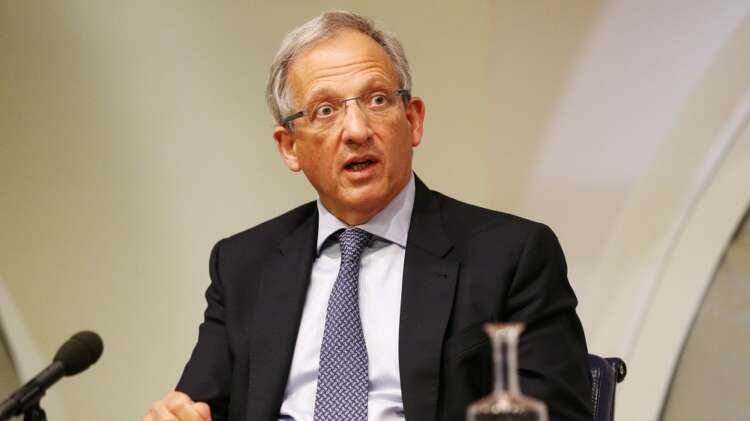Bank of England says LDI crisis shows non-banks need stronger rules
Published by Jessica Weisman-Pitts
Posted on October 19, 2022
2 min readLast updated: February 3, 2026

Published by Jessica Weisman-Pitts
Posted on October 19, 2022
2 min readLast updated: February 3, 2026

By Huw Jones
LONDON (Reuters) – A decade on from the global financial crisis, non-banks are still not being properly regulated as rocketing interest rates point to new weak points such as emerging market funds, Bank of England Deputy Governor Jon Cunliffe said on Wednesday.
Liability-driven investment funds (LDI) in Britain were last week forced by regulators to build up their liquidity defences after the Bank of England had to buy UK government bonds to avoid the funds collapsing due to a spike in gilt yields.
Cunliffe warned that more stresses could emerge as global financial markets adjust to a rapid rise in interest rates, with “weak” points predominantly in non-banks like leveraged funds.
“The areas I would look to see stress where you might see stress is emerging markets, particularly with the strength of the dollar, and emerging market bond funds,” Cunliffe told the Treasury Select Committee.
The global financial crisis prompted regulators to tighten capital rules for banks, but disagreements between central banks, who focus on financial stability, and securities regulators scuppered initial efforts to regulate “shadow” or non-banks like various types of investment funds.
The funds industry has also lobbied hard to stop heavier types of regulation, such as requirements to hold much bigger liquidity buffers or capital reserves.
In financial stability terms, there is a gap globally between the powers of the financial stability authorities and the data they can see on non-banks, Cunliffe said.
Without coordinated global action, it would be difficult for one jurisdiction to make changes in such cross-border sector.
Cunliffe said the banking system is now resilient to quite considerable stress, but non-bank finance is not as resilient to liquidity problems, as seen with LDI and during the COVID-19 pandemic.
Central banks had to inject liquidity in markets to avoid money market funds freezing up when economies went into lockdown in March 2020.
“I actually do think that there needs to be more attention to financial stability and macro prudential issues between authorities like the Bank of England, and the securities regulators who are responsible for those markets,” Cunliffe said.
Cunliffe said stress tests of banks and non-banks may also need to be tougher and go beyond the magnitude of shocks seen historically given what happened to markets during COVID and with LDI.
(Reporting by Huw Jones; Editing by Bernadette Baum)
Liquidity refers to the ease with which an asset can be converted into cash without affecting its market price. It is essential for financial stability, especially in times of economic stress.
Investment funds pool money from multiple investors to purchase securities, such as stocks and bonds. They provide diversification and professional management to investors.
Financial stability is a condition where the financial system operates effectively, with institutions able to manage risks and absorb shocks without causing widespread economic disruption.
Emerging markets are economies that are in the process of rapid growth and industrialization. They often present investment opportunities due to their potential for high returns.
A regulatory framework consists of the laws, regulations, and guidelines that govern financial institutions and markets to ensure stability, transparency, and fairness.
Explore more articles in the Top Stories category











